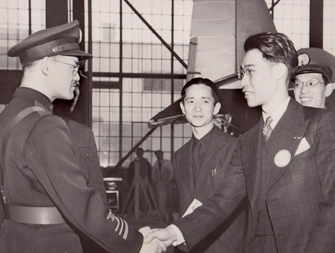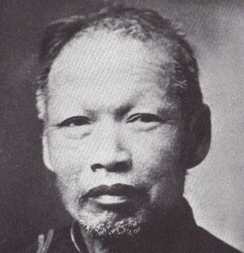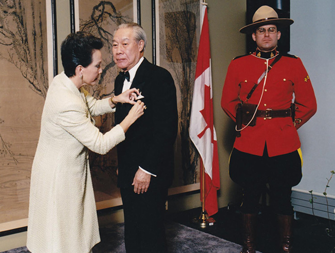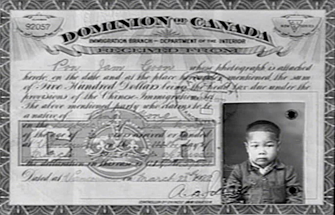"The Chinese have made a great contribution to Canada and it's ... time that they [Canadians] recognized that contribution."
James Pon
"I came to Canada when I was a 5-year-old youngster," says James Pon, who was born in Toishan County and whose grandfather laid railway ties during the construction of the Canadian Pacific Railway. "And I had to pay the head tax, which was $500, and my mother had to pay head tax $500, total of $1,000, which was quite a sum of money in those days. It was 1922, and it took my father 17 years to repay this $1,000 loan."
"In those days, there was a recession in Canada ... it was horrible. As a youngster I had to go out and work when I was 12 years old. I had to earn my own living at 12 years old. Imagine that? It was right up at the start of my life."
From daybreak to sundown, as a young boy he waited on tables, mopped the floors and washed dishes, first at his family's restaurant in Chauvin, Alberta, then as an adolescent in another town, away from his family. The financial burden of the head taxes his family paid to be together in Canada meant his parents "couldn't afford to keep me at home, because they couldn't afford to provide me with food and lodging."
next page >James stuck with his studies and graduated from high school, worked in restaurants and studied engineering and business in Michigan. During World War II, he worked for DeHavilland, which made the Mosquito bomber in Toronto, and he won a design award for a riveting system that increased production for the war effort. James later worked for Atomic Energy of Canada Ltd. He is currently president of the Foundation to Commemorate the Chinese Railroad Workers in Canada.
< previous page




































